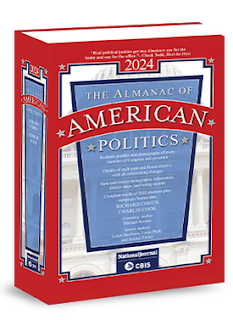By Louis Jacobson
Editor's Note: Louis Jacobson is a senior correspondent for PolitiFact and a regular contributor on state politics to Sabato's Crystal Ball and U.S. News and World Report. Since 2002, Louis has handicapped political races, including races for Congress, governor, state legislature, other state offices, and the electoral college. Louis has served as deputy editor of Roll Call and as the founding editor of its legislative wire service, CongressNow. Earlier, Louis spent more than a decade as a reporter covering Congress, politics and lobbying for National Journal. He is also a senior author for "The Almanac of American Politics," a heralded reference work for those who are interested in knowing more about the politics of the United States.
In this special column, Louis shares his chapter on North Carolina and Governor Roy Cooper. In addition, readers of ONSP can pre-order this book with a 15 percent discount.
For more than five decades, the Almanac of American Politics has set the standard for political reference books.
In July, the Almanac will be publishing its 2024 edition, with some 2,200 pages offering fully updated chapters on all 435 House members and their districts, all 100 senators, all 50 states and governors, and much more.

